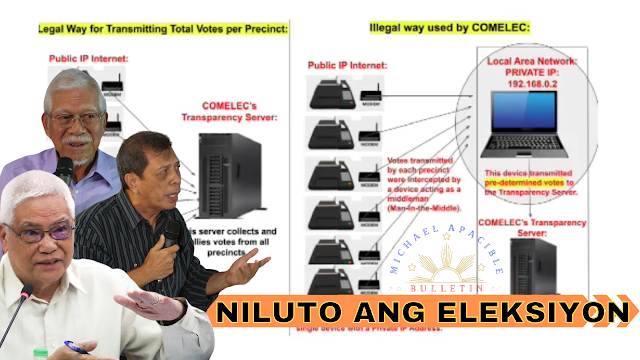2022 RIGGED ELECTION SCANDAL | Supreme Court’s Secret Decision on TNT Trio's Petition
Supreme Court Rejects TNT Trio's Mandamus Petition on 2022 Election Results
The TNT Trio, composed of former Department of Information and Communications Technology (DICT) Secretary Eliseo Rio, former Commission on Elections (COMELEC) Commissioner Augusto "Gus" Lagman, and former FINEX Financial Executive Institute President Franklin Ysaac, recently questioned the integrity of the 2022 presidential and vice-presidential elections. They filed a mandamus petition before the Supreme Court, seeking to compel the COMELEC to conduct a manual audit of votes from selected ballot boxes. However, the Supreme Court rejected their petition, prompting them to file a motion for reconsideration (MR).
Supreme Court's Decision on the Mandamus Petition
The Supreme Court dismissed the TNT Trio’s mandamus petition without thoroughly addressing its merits. According to Franklin Ysaac, the decision appeared to disregard the group's arguments, stating that their claims lacked merit. Despite this setback, their legal team promptly took action within the ten-day window provided by the court to file an MR.
Filing of the Motion for Reconsideration
In response to the rejection, the TNT Trio consulted their legal advisors, including a constitutional lawyer, who emphasized that their case is grounded in their constitutional right to information. They argued that the public has a right to scrutinize the electoral process, particularly since their multiple requests for information from COMELEC throughout 2022 and 2023 were met with insufficient responses.
The MR, prepared with additional legal justifications, was submitted before the end of the year. Their revised petition focused on the right to information regarding the election process, stressing that the COMELEC failed to adequately address concerns about election transparency.
The Core Issue: Electoral Transparency
The TNT Trio originally requested a manual audit of ballots from a small, representative sample of precincts across different regions. Initially, COMELEC agreed to allow a manual audit of 1 to 5 ballot boxes per region across 15 to 17 regions. However, later, COMELEC unexpectedly withdrew this commitment. This reversal was a key factor in the group’s decision to escalate the matter to the Supreme Court.
According to Ysaac, the Supreme Court’s denial of their mandamus petition was puzzling, especially given that a decision had allegedly been reached as early as August but was only released in December. This raised concerns about transparency in judicial proceedings. The delayed disclosure of the decision further fueled suspicions that due process was not adequately observed.
Implications of the Supreme Court’s Decision
The Supreme Court’s ruling has significant implications for electoral transparency in the Philippines. The TNT Trio argues that the Supreme Court failed to hold COMELEC accountable for its own commitments. The court’s position effectively allowed COMELEC to revoke its initial agreement to conduct a limited manual audit, which the petitioners view as a direct violation of the public’s right to verify election results.
Ysaac emphasized that their case is not merely about questioning the election outcome but about ensuring that electoral processes remain transparent and verifiable. He asserted that the public deserves clarity on the procedures used to count votes, particularly given the role of technology in elections.
The rejection of the TNT Trio’s mandamus petition raises pressing questions about the transparency and accountability of Philippine elections. As the legal battle continues with their motion for reconsideration, the trio remains steadfast in their advocacy for electoral integrity. Whether the Supreme Court will reassess its stance remains to be seen, but for now, the issue underscores the broader need for greater scrutiny in the electoral process.



Comments
Post a Comment